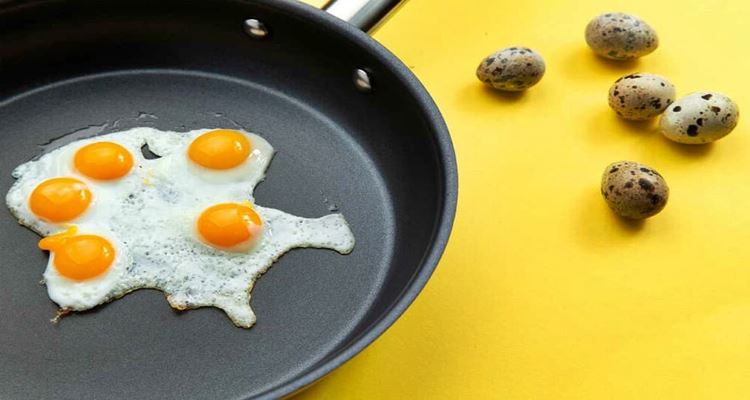Here’s everything you need to know about quail eggs and how to cook them.
QUAIL EGGS – Small and delicate are quail eggs and here are some things to know about them including their important health benefits.
Practically a tiny version of a chicken egg is a quail egg. This egg is used pretty much like how a chicken egg is used like as a garnish for salads, sandwiches, and canapes, or served on toast. Cooking this may take a short time considering its small size. It can be boiled or fried.

One egg weighing 9 grams has the following:
- Calories: 14
- Protein: 1 gram
- Fat: 1 gram
- Carbs: 0 grams
- Fiber: 0 grams
- Choline: 4% of the Daily Value (DV)
- Riboflavin: 6% of the DV
- Folate: 2% of the DV
- Pantothenic acid: 3% of the DV
- Vitamin A: 2% of the DV
- Vitamin B12: 6% of the DV
- Iron: 2% of the DV
Here’s a comparison between the quail and chicken eggs:
| about 10 eggs of a quail | about 2 large chicken eggs | |
| Calories | 158 | 148 |
| Fat | 11 grams | 10 grams |
| Protein | 13 grams | 12 grams |
| Choline | 48% of the DV | 61% of the DV |
| Riboflavin | 61% of the DV | 32% of the DV |
| Vitamin B12 | 66% of the DV | 43% of the DV |
| Iron | 20% of the DV | 9% of the DV |
According to a post from WebMD, this kind of egg is a great source of protein and protein is an important nutrient needed for a lot of bodily processes. They are also filled with iron which is better for reducing the risk of anemia.
Other benefits include balancing cholesterol that helps improve heart health and boosting immunity because of the large amounts of vitamin C and vitamin A it has.
READ ALSO:
What can you say about this? Let us know!
